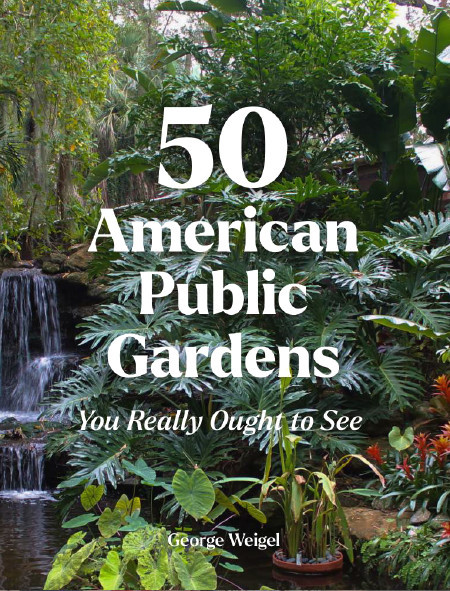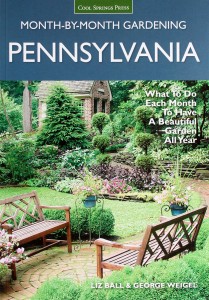Going Native with the “Wild Ones”
March 8th, 2022
If you’re interested in native plants, a new chapter of a national native-plant group is taking root in 11 counties around south-central Pennsylvania.

Bill and Jane Allis are spearheading a local chapter of Wild Ones.
The group is known as the “Wild Ones,” and it’s a Wisconsin-based not-for-profit that aims to encourage people to plant more native plants in their yards.
The local effort is being spearheaded by Bill and Jane Allis, a retired couple who opened the semi-public, 36-acre Bower Native Plant Garden and Sculpture Park last year in Perry County.
The new South Central Pennsylvania Chapter of the Wild Ones met for the first time online via Zoom last week. It’ll meet monthly and feature native seed and plant swaps, field trips to native-plant gardens and nurseries, and educational resources on native plants.
The national group was founded in 1990 with the aim of promoting “environmentally sound landscaping practices to preserve biodiversity through the preservation, restoration, and establishment of native plant communities.”
Its motto is “healing the Earth, one yard at a time.”
Including the new South Central Pennsylvania chapter, Wild Ones now has 67 chapters in 26 states, plus 19 more “seedling” chapters in the process of forming. 
Prospective members can join by going to the Wild Ones “Join Now” page and selecting the membership-type drop-down box. Annual household memberships begin at $40.
Jane Allis, who’s president of the new local chapter, said residents can still participate in the group and its activities without becoming an official Wild Ones member.
The local group next plans to meet, in person, on Sun., March 27, at 2 p.m. at The Bower for a session on end-of-winter native-plant care.
It’ll also meet Mon., March 28, at 7 p.m. via Zoom for its regular monthly meeting. Meetings are to be held the last Monday of each month.
The South Central Pennsylvania chapter will cover Dauphin, Cumberland, Lebanon, Adams, York, Perry, Juniata, Mifflin, Huntingdon, Franklin, and Fulton counties.
More information is available by emailing Allis at wildonesscpa@gmail.com or by visiting the chapter’s Facebook page.
Planting native plants has become a hot topic in recent years as a solution to dwindling bird and bee populations, combating invasive plants that are overtaking native vegetation, and buffering the effects of climate change.

Most of our landscapes don’t look anything like how nature would landscape them.
Wild Ones says that native plants – defined as those that occur naturally in a region in which they evolved – help restore natural ecosystems, provide food and shelter to wildlife, generally grow well with no pesticides or fertilizers and less water, and add color and beauty to our typically lawn-dominated yards.
“One of the things that (author Dr. Douglas) Tallamy talks about is that we have native-plant conserves and demonstration gardens,” says Allis, “but those alone can’t repair all of the habitat that’s needed. We need corridors of home gardens that supply host plants and food to wildlife. If enough suburban and urban yards are planted with native plants, that can make a big impact.”
Allis says she’s seen the results at The Bower, which got a native-plant makeover that included six acres of wildflower meadows.
“We’ve been living on our property for all of these years and enjoying the wildlife, so we just naturally gravitated to native plants,” she says. “We have non-natives that we enjoy, too, but adding so many natives confirmed to us the difference. The number of butterflies, bees, and birds that came has been really amazing to witness.”
Former Cumberland County Master Gardener Lorrie Preston also has gravitated toward natives and is among the local Wild Ones fledgling members.
She says she grew up “romping in the fields, meadows, and woods and splashing in the creek” and came to realize that native plants are a key part of the natural world.
“The interactions between the plants and the living creatures are where the real life and joy of the garden is found,” she says.
Preston, who’s also a past president of the local Appalachian Audubon Society, says more and more people are getting the message about the importance of adding native plants to home landscapes.

Which of these two yards do you think a bird would rather visit?
“Humans have strayed so far away from how nature was intended to work,” she says. “We cut down trees, tear out plants that are growing in a particular area, then replace them with acres of turfgrass and plants from other corners of the world that offer very little or nothing to the birds, pollinators, beneficial insects, and other creatures that were living here before us. We then spray pesticides to control the problems that get out of hand because our land is not in balance. If there’s anything left over, we pave it.”
Preston says part of the new interest in native plants has come from people being at home more during the COVID pandemic.
“That has created an interest in gardening and an opportunity for people to slow down and think more about what they are doing in their yards and gardens,” she says.
But education also has picked up, she adds.
“Education and helping people understand why this is important makes all the difference,” she says. “If we know better, we do better… Each one of us can make a real difference with what we plant.”
Allis says a big part of the new Wild Ones chapter will be to educate the public and give people hands-on information on where to find native plants and which ones to plant where.
“There’s been a lot more interest in this lately and more places that are offering native plants,” she says. “We see new ones popping up all of the time.”
She adds that gardeners don’t have to convert over to all natives in order to make a difference.
“Dr. Tallamy says that if you can at least get to 70 percent native, that’s a key level,” Allis says.
One of the local chapter’s initial resources is a list of Pennsylvania nurseries that specialize in native plants and seeds.
Here’s that list:
Behmerwald Nursery (Schwenksville)
Bowman’s Hill Wildflower Preserve (New Hope)
Collins Nursery (Glenside)
Diakon Wilderness Native Plant Nursery (Boiling Springs)
Ernst Seeds (Meadville)
Edge of the Woods Native Plant Nursery (Orefield)
Gino’s Nursery (Newtown)
Go Native Tree Farm (Manheim)
Hungry Hook Farm (Bainbridge)
Northeast Natives and Perennials (Quakertown)
Perennial Gardens (New Bloomfield)
Redbud Native Plant Nursery (Media)
Yellow Springs Farm (Chester Springs)
An additional resource is the new Garden for Wildlife collection offered by the National Wildlife Federation. Sets of native plants for three different goals (bees, monarch butterflies, and hummingbirds) are delivered directly from regional growers.
If you’re interested in finding out exactly which plants are native specifically to south-central Pennsylvania, I’ve published a pair of lists put together by Cumberland County Master Gardener Susan Skender.
And if you’d like to see The Bower, Lowee’s Group Tours and I are offering a daylong tour of four area gardens that will include a tour of The Bower with the Allises. Those are scheduled for June 10 and 11. More details are on George’s Talks and Trips page.







